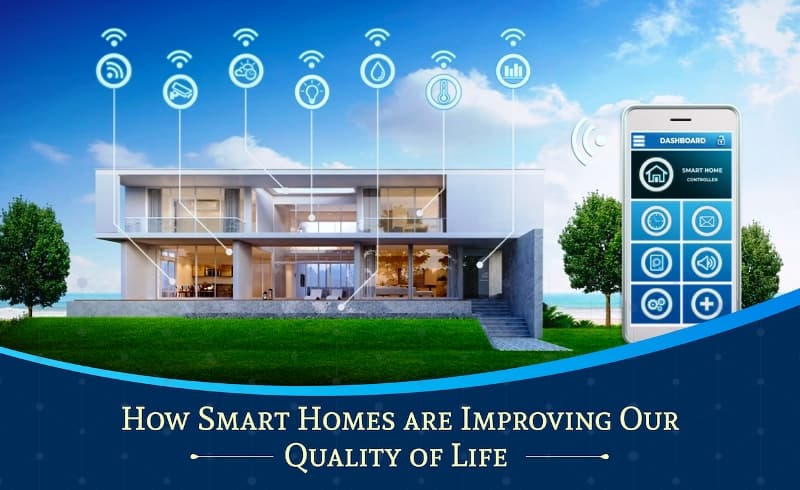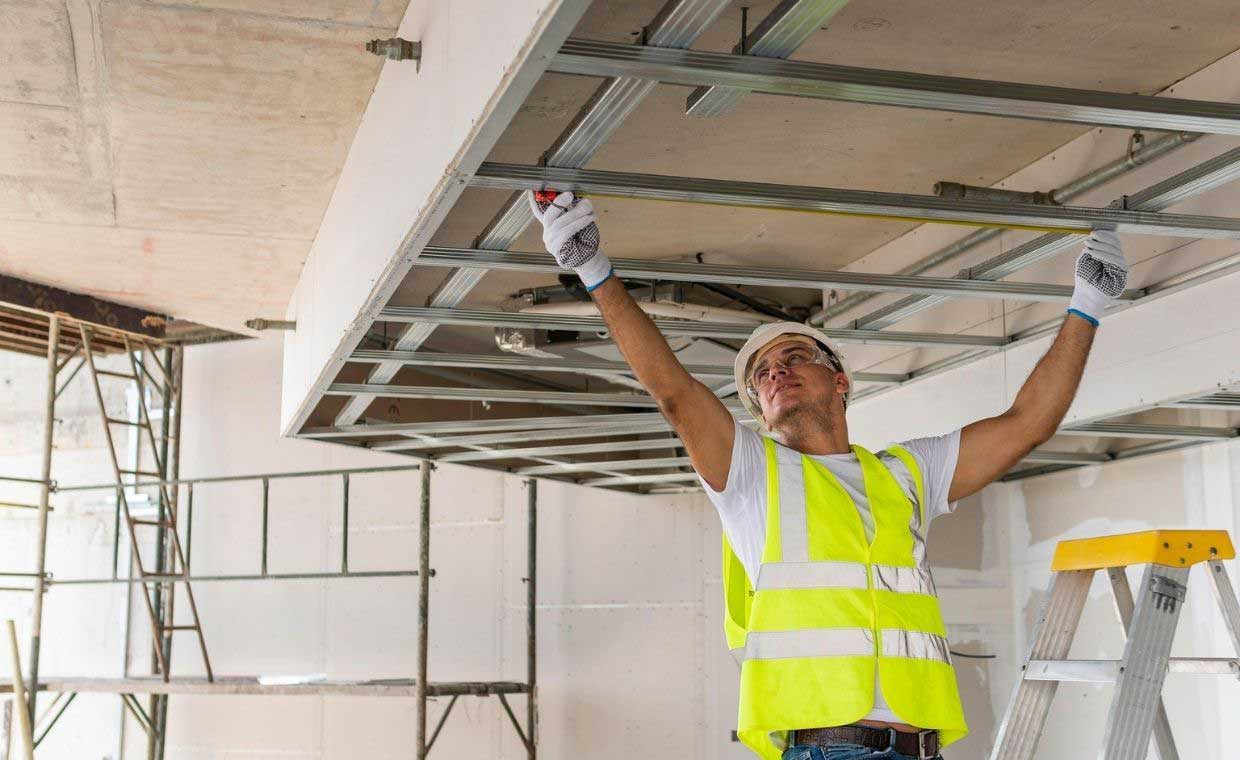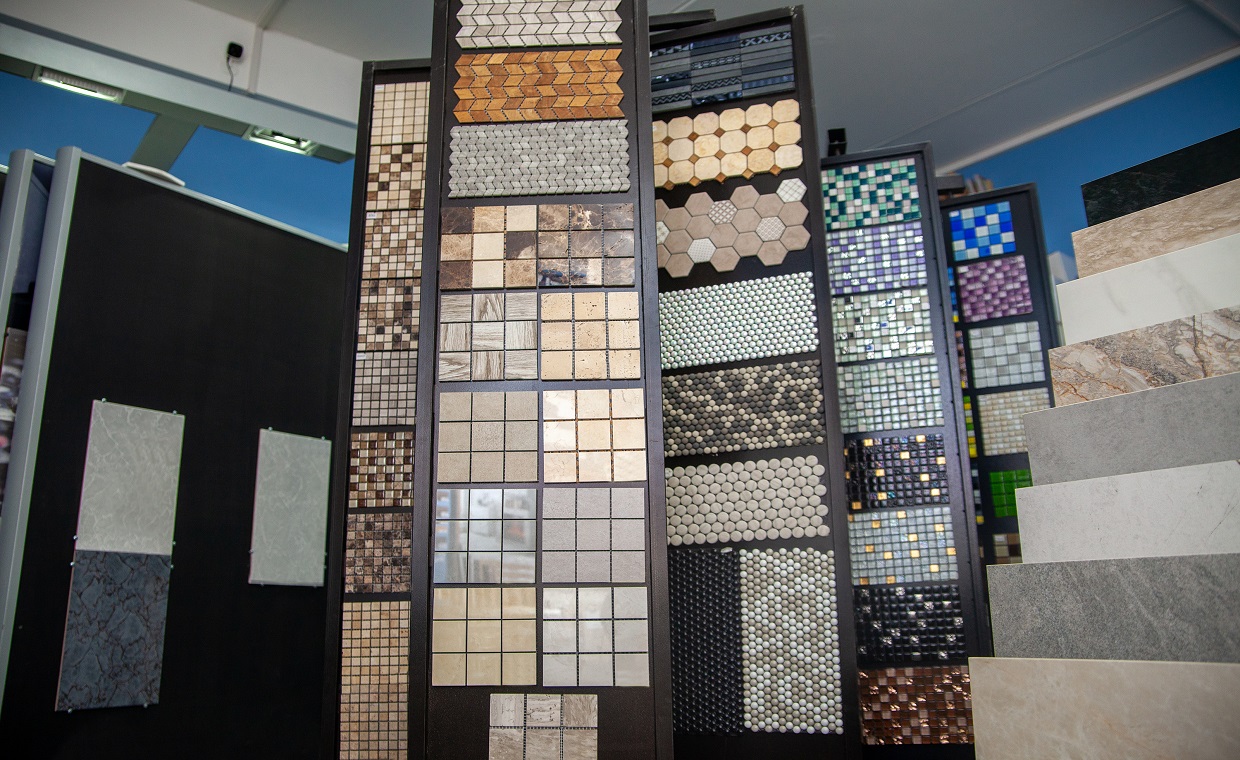
The popularity of smart homes has significantly increased in recent years. Homeowners may now manage and automate a variety of features of their living environments thanks to technological breakthroughs and the growing integration of Internet of Things (IoT) devices. Smart homes provide convenience, energy efficiency, and increased security, ranging from appliances and entertainment to lighting and security systems. In this article, we’ll see the idea of smart houses and how they are changing how we live with smart home devices.
Why Do I Need a Smart Home?

A smart house will make your life simpler and more convenient, which is why you should get one. The following are the benefits of having a smart home.
1. Connectivity and Automation
2. Enhanced Security
3. Energy Efficiency
4. Convenience and Comfort
5. Health and Wellness
Let’s quickly look at the positive aspects of having a smart home.
01. Connectivity and Automation

Connectivity is the driving force behind a smart home. By connecting various devices and systems through a central hub, homeowners can control and automate their homes from a single interface. Home automation allows for seamless integration and communication between different smart home devices, such as thermostats, cameras, door locks, and entertainment systems. With smart home products like voice assistants such as Amazon Alexa and Google Assistant, homeowners can even control their smart homes through voice commands, making everyday tasks effortless.
02. Enhanced Security

One of the most significant advantages of a smart house is enhanced security. Smart home security system provides homeowners with real-time monitoring and remote access to their properties. Doorbell cameras with motion sensors send alerts to homeowners’ smartphones, allowing them to see and communicate with visitors from anywhere. Smart home devices like smart locks enable keyless entry and can be remotely controlled, providing an extra layer of security. Integration with lighting systems allows homeowners to simulate occupancy even when they’re away, deterring potential burglars.
03. Energy Efficiency

Smart homes contribute to energy conservation and cost savings by offering intelligent energy management. Thermostats, equipped with occupancy sensors, learn the household’s schedule and adjust temperature settings accordingly, saving energy when rooms are unoccupied. Lighting systems can be automated to turn on and off based on occupancy or natural light levels, reducing unnecessary electricity consumption. Smart home products and appliances, such as refrigerators and washing machines, can optimize their energy usage based on usage patterns and time of day, further reducing energy waste regulated by electrician.
04. Convenience and Comfort

Smart homes provide unparalleled convenience and comfort for homeowners. Imagine arriving home after a long day and having the lights automatically turn on, the temperature set to your preferred level, and your favorite music playing softly in the background. With smart home automation, routines and scenes can be created to tailor the environment to individual preferences. Voice control enables hands-free operation, allowing homeowners to control various aspects of their homes effortlessly. Smart home devices like speakers can also provide weather updates and news and perform tasks like shopping or setting reminders.
05. Health and Wellness

Smart homes are not only about convenience and security but also play a role in promoting health and wellness. Smart devices and home automation can monitor air quality, temperature, and humidity levels, alerting homeowners to potential issues and allowing them to take necessary actions. Sleep trackers integrated into smart beds can monitor sleep patterns, adjusting the bed’s position to provide optimal comfort and support. Smart kitchen appliances can assist with meal planning, portion control, and even suggesting healthy recipes.
Smart Home Future Potential

The potential of smart homes extends beyond the current applications. More innovation and integration are likely to come as technology advances. For example, smart grids could enable homes to interact with the energy grid, optimizing energy usage based on supply and demand, and even selling excess energy back to the grid. Integration with healthcare systems could enable remote monitoring and personalized health management. The possibilities are vast, and as technology continues to evolve, so will the capabilities of smart homes.
In the End,
With their comfort, security, energy efficiency, and convenience, smart homes are revolutionizing the way we live. Homeowners can easily regulate and automate their living environments thanks to the IoT’s integration of numerous systems and gadgets. Future advancements in technology and the adoption of smart houses should result in even higher levels of innovation, efficiency, and integration. The emergence of smart homes is an exciting trend that has the potential to completely change how we live and interact with our houses.
Check out the following articles to learn more about smart homes if you liked this one.
Are Smart Homes Really a Smart Idea??
14 Benefits of Home Automation Technology – Upgrade Your Lifestyle






























